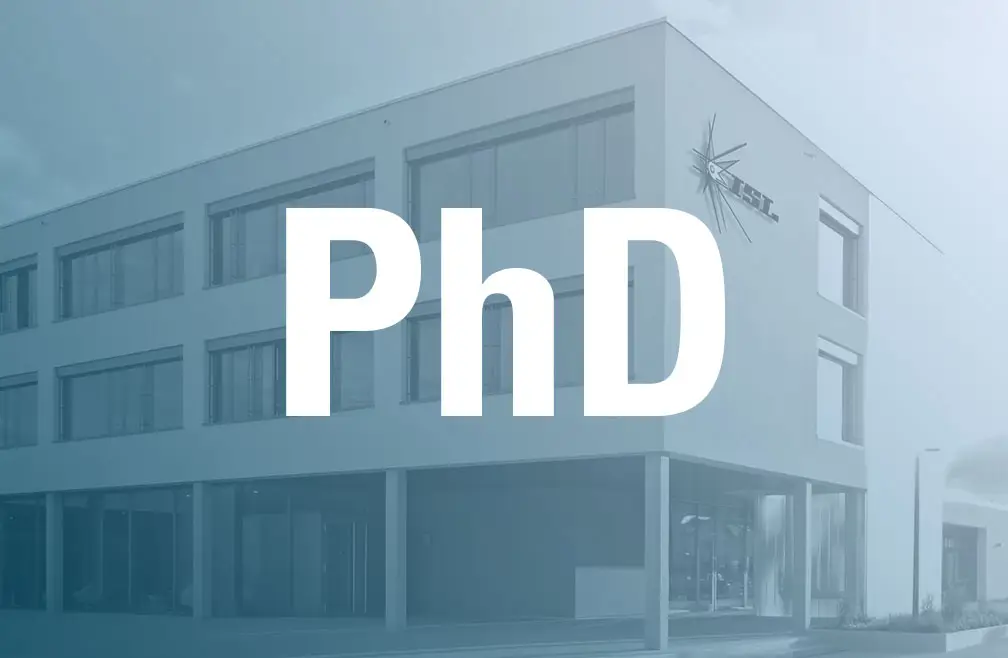ISL is offering a PhD Position
Doppler-Aided Localisation of GNSS Jammers from UAV with a Drone Swarm-Capable Outlook
*In cooperation with industry
Shape the future of secure, resilient navigation technologies
📍 Location: Saint-Louis (France), in the tri-border region of France, Germany, and Switzerland
📃 Contract: 3-year contract, extendable depending on university. Fast-track PhD program with full engineering support.
🕔 Working time: Full-time, with flexible working hours and remote work options
About this Position
Are you passionate about navigation systems that remain operational in uncertain or degraded environments? Do you want to push the science of RF-signal processing, electronic countermeasures and embedded intelligence?
At the French-German Research Institute Saint-Louis (ISL), you will work on the frontier of research on robust and intelligent navigation systems for both defence and security applications. You will collaborate with experts in smart antennas, ELectronic INTelligence (ELINT), drone prototyping, and embedded systems in an inter-disciplinary and multi-cultural team. Your mission will have a direct impact on European technological sovereignty and security.
Your Mission
Global Navigation Satellite System (GNSS) jamming and spoofing devices deny positioning and navigation to civilian, governmental and military users. Small Unmanned Aerial Vehicles (UAVs) or drones are emerging as flexible sensor carrier platforms and could be used to locate the interfering emitter source.
This PhD thesis targets the development of a miniaturized, passive RF seeker capable of detecting, classifying, locating, tracking and homing-in on GNSS jammers, without active reliance on GNSS navigation of the drone itself.
You will develop and validate algorithms that estimate the location of GNSS jammers by exploiting Doppler shifts and platform kinematics. The goal is to allow a single drone to localise the jammer using its own manoeuvring and RF-sensing. Based on a Commercial-Of-The-Shelf (COTS) Software-Defined-Radio (SDR), a prototype software and system is to be built and experimentally tested in lab and in flight.
As an outlook, you will explore in simulation, how multiple low-cost platforms can collaboratively refine jammer localisation using distributed signal strength, Doppler, or timing data. This lays the groundwork for future swarm-enabled home-on-jam capabilities with minimal per-unit cost.
What We Expect from You
- Master in electrical engineering, microwave engineering, computer science, or in a comparable field with focus on RF signal-processing
- Expertise in:
- RF signal processing and Software Defined Radio
- Programming experience in C/C++, Python, or Matlab
- Additional assets could be:
- Familiarity with AI tools, such as PyTorch, JAX, TensorFlow, MLFlow, WandB and edge computing platforms (e.g. Jetson)
- Interest in military trends, especially regarding drones and navigation warfare
- Excellent command of English (spoken and written); a good command of French and/or German would be an advantage
What You’ll Get in Return
At ISL, you will benefit from:
- A top-tier Franco-German research environment with campus life
- Access to cutting-edge infrastructure for simulation, prototyping and live testing
- Collaboration with over 400 colleagues including 40 PhD-students
- Strong scientific supervision and support for relocation, on-boarding, career development and academic research
- Flexible working conditions with a true work-life balance and 40+ days of paid leave per year
- A vibrant culture of knowledge-sharing, innovation and employee driven initiatives (social, sports and cultural activities)
How to apply
👉 Learn more about ISL benefits and our research culture here:
📎 Why join us
🗓 Start date: to be defined
🌐 Working language: English (French and/or German appreciated, language courses and casual multi-lingual coffee meetings available).
At ISL, your research builds the navigation technologies of tomorrow. Join us to make your mark.
📩 Contact for questions: jobs@isl.eu

